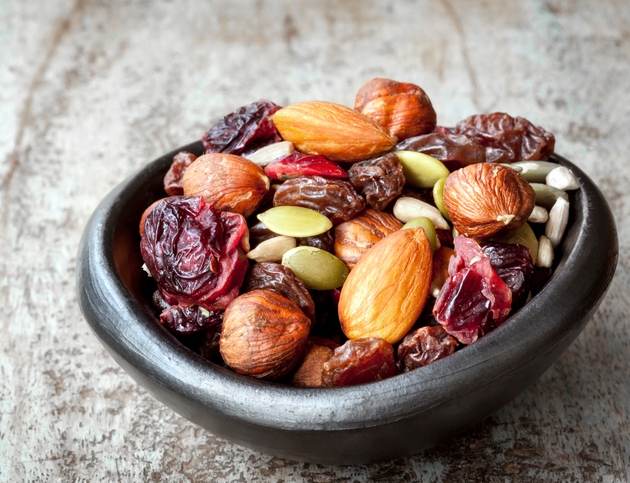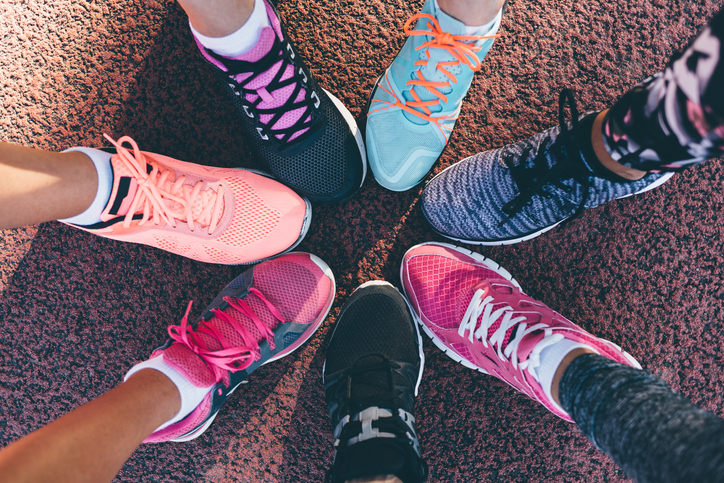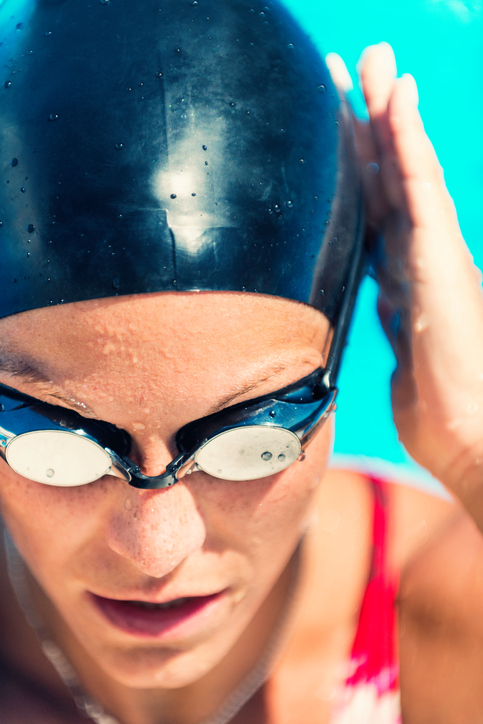How to Beat the Freshman 15 and Stay Healthy in College
So you’ve graduated from high school and are feeling a lot of different emotions. Chances are this past year has been a whirlwind of college admissions, decisions, exams, celebrations, goodbyes a series of "lasts," and talk of new beginnings. Your plans are solidified for next year and you’re on your way to college. First of all, congratulations. Second, you might be a little nervous. Let’s set the record straight– EVERYONE is nervous and that’s okay.
From a nutrition standpoint, people are generally worried about “the Freshman 15.” With that worry, several unintended consequences might arise. Disordered eating, eating disorders, inadequate fueling among college athletes/subsequent injuries and general anxiety around food are just a few of the scenarios I have seen among incoming freshman. Unfortunately, these food behaviors don’t tend to go away after Freshman year. They stick around and can serve as the long-lasting foundation for an unhealthy relationship with food.
My greatest hope in the creation of Elliott Performance & Nutrition’s College Student program and the writing of this article is to soften that anxiety. Entering college is scary enough and there are plenty of things you can do to better adjust to this new food environment. Furthermore, a positive relationship with food is an important skill to develop. Establish this healthy relationship now, and you’ll save yourself a lot of time, emotional energy, money and more.
Here are some tips to get you started:
1. Stock your dorm with healthy snacks
College is intense and you’ll be asking a lot of your mind and body. Fuel yourself with snacks that provide the lasting energy and nutrients you need to perform. Single serving sizes are always a smart idea as they can help reinforce mindful eating. Here is a list of snack ideas.
2. DO eat breakfast
Would you start a road trip with no gas in your car? NO. So don’t start your day without fuel in the tank. Eat breakfast- it is strongly associated with the ability to maintain a healthy weight and better performance in school.
3. Get an idea of what your body needs to fuel your activity
Intuitive eating becomes hard when your environment includes buffets, kegs and food options any time, any place, any hour. Working with a dietitian to help you understand what your body's nutrient and caloric needs can be extremely helpful. This will ensure that you are fueling adequately for your individual activity level and health. Contact us if you would like to participate in our discounted college program.
4. Get a true understanding of liquid calories
Alcohol packs a fair amount of calories, but not a lot of nutrients. Be aware of what you are drinking not only for your waistline, but also for your health. Here is a link to a calculator to help you better understand caloric intake from booze. In addition, here is a handout explaining the potential health consequences of binge drinking. Check out these resources to educate yourself on all things alcohol.
5. Don’t drink your calories
We live in a world full of Frappuccino’s, other sugar-packed coffee/tea drinks, sodas, energy drinks and more. Skip the calories in your drink- your body will thank you (in a 2010 study published in Diabetes Care, researchers found that having 1-2 sugary drinks per day is associated with a 26% higher risk of developing diabetes).
6. Join club sports teams and fitness clubs
College is a time to try new things, including new activities. Being active in college has lots of benefits. It is a great way to meet people, manage stress, help you to stay healthy and prevent unwanted weight gain. Research your school’s club sports teams now, and sign up come fall.
7. Ditch the Diet Culture
In one systematic review, researchers found that up to 2/3 of dieters regain more weight than they lost on their diets.[i] In another study, researchers found that frequent weight cycling was associated with increased depressive symptoms.[ii] Long story short, yo-yo dieting isn’t particularly effective. Rather than jumping from fad diet to fad diet, constantly worrying about losing 10 pounds and making yourself miserable, ditch the diet culture. Develop a sustainable way of eating that allows for indulgences while emphasizing the foods you need to fuel both health and life.
8. You can eat pizza, but eat the salad too
Eat pizza! But also remember that you need nutrients from vegetables as well. If you include a salad, the nutritional value of your meal will be better, you will likely feel fuller faster and the overall caloric content of your meal will likely be lower. As my colleague and mentor Marcey Robinson says, “its not so much about what’s there, but what’s not there.”
9. Get enough sleep
Several studies have found that not getting enough sleep and inconsistent sleep schedules are associated with worse academic performance in college students.[iii] Also, lack of sleep can lead to weight gain. Bottom line, aim to get at least 8 hours of sleep per night and do your best to study throughout the semester so you don’t have to pull all-nighters come exam time.
10. If you’re a collegiate athlete, make sure you understand your fueling needs
Proper fueling can be a huge weapon for athletic performance. Conversely, improper fueling can lead to injuries and sub-optimal performance. As you step up to a higher level of competition in college, make sure that you understand your sports nutrition needs. Our college program is for athletes as well as non-athletes, so contact us to create a fueling plan to make nutrition your secret weapon come fall.
11. Eat balanced meals and eat mindfully to conquer the dining hall
College dining halls offer numerous options because they need to appeal to a variety of tastes. While the variety is the spice of life, the buffet style can lead to mindless overeating and subsequent weight gain. This is where the plate method can be a useful visual. Start by making half your plate fruits and vegetables (this will ensure the base of your meal is nutrient dense, filling and low-calorie). 1/4 of your plate should be comprised of some sort of protein and another 1/4 should include some sort of grain. Before you go for a second plate of food, be sure that you have had enough water and ask yourself if you are truly hungry (other reasons you might be eating include boredom, something looks good/fear of missing out, nervousness or emotions like stress or being homesick). Just having an awareness of why you are eating can lead to better decisions in the dining hall.
12. Being active isn't just about sports
There are tons of ways to be active in college. From walking to class to taking the stairs, to even some forms of volunteering, there is always a way to get moving. Luckily, most activities also involve meeting people and socializing. Choose to be active both physically and socially by taking advantage of these opportunities.
13. Don’t multitask while eating
Remember, chocolate covered pretzels and other snacks are not necessary for studying. If you are eating, sit down at a table and eat. If you are studying, study. When you eat while studying or watching TV, your mind is distracted, which can lead to mindless, overeating.
14. Drink water
Water and proper hydration are necessary for functioning in daily life. Furthermore, being hydrated will help you to perform at your best and prevent overeating. Get a reusable water bottle and bring it with you everywhere. Also, make sure that you are having a glass of water with meals and (if you choose to drink alcohol) between drinks.
15. If you find that you’re overly anxious about food, check in with a dietitian or your school’s health and wellness center
Unfortunately, eating disorders and disordered eating are prevalent on college campuses. If you find that food is consuming your thoughts or if you are overly anxious about eating, don’t hesitate to consult a dietitian or school health and wellness counselor. Here is an additional screening tool that you can use to determine if you should seek professional help. Remember, the earlier you seek help with food issues/anxiety, the less likely these issues will linger.
In conclusion, college is a wonderful time of life, particularly when you play your cards right. As you prepare for this next step, realize that it is a little scary and most people are definitely nervous. Let us know if we can help with a nutrition and wellness plan as you get ready to put your best foot forward this fall.
References
[i] Mann, T., Tomiyama, A. J., Westling, E., Lew, A.-M., Samuels, B., & Chatman, J. (2007). Medicare's search for effective obesity treatments: Diets are not the answer. American Psychologist, 62(3), 220-233. http://dx.doi.org/10.1037/0003-066X.62.3.220
[ii] Madigan, C. D., Pavey, T., Daley, A. J., Jolly, K., & Brown, W. J. (2017). Is weight cycling associated with adverse health outcomes? A cohort study. Preventive medicine.
[iii] Taylor, D. J., Vatthauer, K. E., Bramoweth, A. D., Ruggero, C., & Roane, B. (2013). The Role of Sleep in Predicting College Academic Performance: Is It A Unique Predictor? Behavioral Sleep Medicine, 11(3), 159–172. http://doi.org/10.1080/15402002.2011.602776





